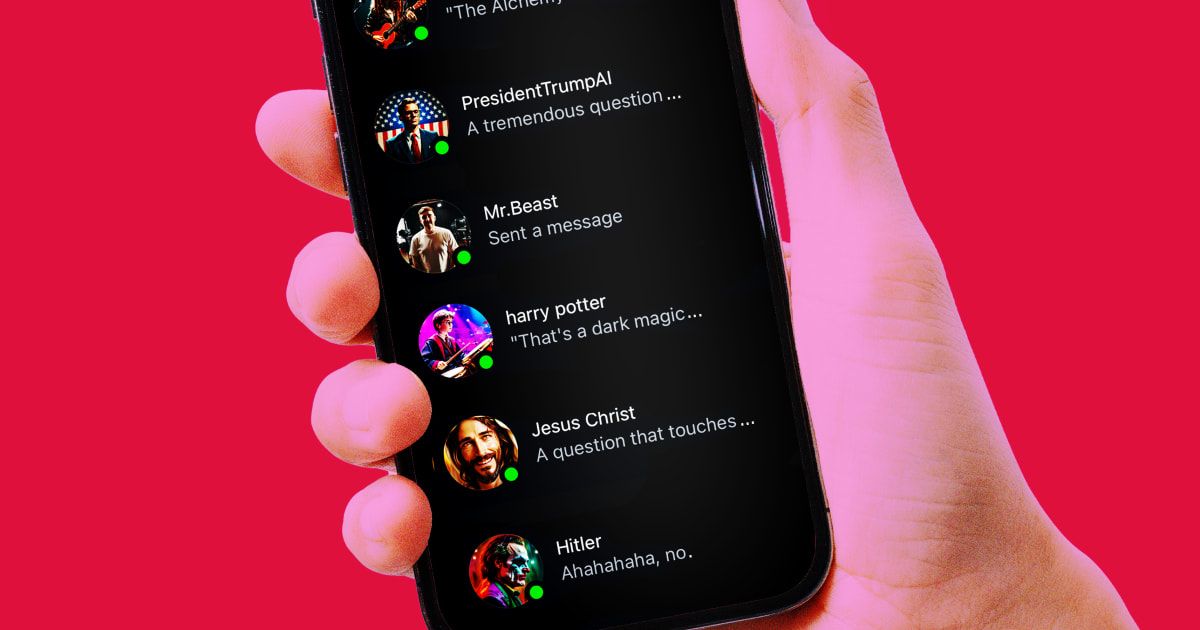Controversial Figures and Pop Icons: The Rise of User-Created AI Chatbots
In the ever-evolving landscape of technology, Meta has stepped into a contentious arena by launching user-generated AI chatbots that draw upon the personas of controversial historical figures and modern pop icons. This bold move has ignited a vibrant debate about the ethical implications and social responsibilities entwined with such creations. As users engage with these digital avatars, it becomes crucial to explore the ramifications of this technology in relation to culture, morality, and the potential for misrepresentation.
The Concept of User-Created AI Chatbots
Meta’s foray into user-created AI chatbots allows individuals to design and interact with AI that embodies various personalities, including notorious leaders, celebrities, and cultural icons. By offering a platform where users can craft their own chatbots, Meta encourages creativity and personal expression. However, this freedom comes with significant risks. What happens when a chatbot mimics a figure who has a contentious or harmful legacy? This question lies at the heart of the ongoing debate.
The Appeal of Controversial Figures
Controversial figures have long fascinated society. Historical icons like Adolf Hitler or Joseph Stalin evoke strong emotions, while modern pop icons such as Kanye West or Andrew Tate generate discussions about fame, influence, and accountability. The allure of these personalities often stems from their polarizing nature, which can be captivating in a digital format. Users may feel empowered to engage with these figures, either to explore their ideologies or critique their actions.
- Historical Figures: Engaging with AI representations of historical figures can provide educational insights but risks glorifying or trivializing complex legacies.
- Pop Icons: Chatbots based on contemporary celebrities may explore their cultural impact, but can also promote negative behaviors or ideologies.
Ethical Considerations and Responsibility
As Meta unleashes this technology, ethical considerations loom large. The capacity to create chatbots based on controversial figures raises questions about the responsibility of both the platform and the users. Here are some key points of contention:
- Misrepresentation: How accurately do these chatbots represent the figures they mimic? A bot that oversimplifies a complex personality risks distorting public perception.
- Glorification vs. Critique: Users may inadvertently glorify negative traits or actions associated with controversial figures, leading to the normalization of harmful ideologies.
- Privacy and Consent: While historical figures cannot consent to their likeness being used, modern figures may not appreciate the creation of AI avatars that misrepresent them.
Impact on Society and Culture
The emergence of user-created AI chatbots has the potential to reshape cultural conversations around controversial figures. These digital interactions can serve as a double-edged sword:
- Enhanced Understanding: Engaging with AI representations may foster critical thinking and deeper understanding of historical contexts and societal impacts.
- Promotion of Toxicity: Conversely, these chatbots can perpetuate harmful stereotypes and ideologies, especially when they lack adequate moderation and guidelines.
Regulation and Guidelines
In light of these concerns, the need for regulation and guidelines is paramount. Meta, and similar platforms, must consider implementing robust moderation systems to oversee the creation and interaction with these chatbots. Possible measures include:
- Content Guidelines: Establish clear rules regarding which figures can be represented and how they can be portrayed.
- Community Moderation: Encourage users to report inappropriate content or harmful interactions and foster an environment of accountability.
- Educational Resources: Provide users with access to historical context and ethical considerations to inform their chatbot creations.
The Role of Users in Shaping AI Interactions
Ultimately, the responsibility does not rest solely on Meta but also on the users themselves. Engaging with AI chatbots based on controversial figures requires a level of critical thinking and self-awareness. Users should consider:
- Intent: What is the purpose behind creating or interacting with a particular chatbot? Is it for education, critique, or mere entertainment?
- Respect: Understanding the historical and cultural significance of the figures being represented is crucial for respectful engagement.
- Consequences: Users must recognize the potential influence of their interactions and how they may impact public perception or discourse.
Future Perspectives on AI Chatbots
As technology continues to advance, the conversation surrounding user-created AI chatbots will evolve. The integration of AI into our daily lives presents unique opportunities and challenges. Here are a few perspectives to consider:
- Educational Tools: If used responsibly, these chatbots can serve as valuable educational tools, providing insights into historical events and cultural phenomena.
- Entertainment Value: For many, these chatbots will simply be a form of entertainment, albeit one that requires careful navigation due to the sensitive nature of the figures involved.
- Innovation in AI: The development of more sophisticated AI could lead to improvements in how these chatbots represent complex personalities, potentially mitigating some ethical concerns.
Meta’s introduction of user-created AI chatbots based on controversial figures and pop icons is both an exciting and contentious development in the realm of technology. As users experiment with these digital personas, it is vital to navigate the ethical landscape thoughtfully. By promoting responsible use, fostering critical engagement, and encouraging respectful dialogue, we can harness the potential of this technology while mitigating its risks. Ultimately, the conversation around these chatbots reflects broader societal discussions about representation, accountability, and the complexities of human history.
See more Future Tech Daily

